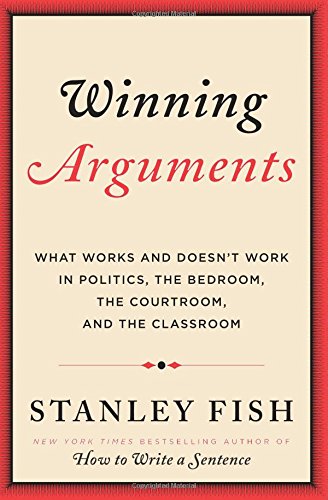
In most argumentative contexts there are things you can say and things you cannot say lest you be penalized or even kicked out of the game because you have flouted its rules. It’s easy to see how this is the law when the rules are written down and enforced by an authority.
In the academic world, the rules of argument are by and large not written down, but everyone in the game knows them and sticks to the decorums of polite disagreement—even though often they barely mask the vicious passions of those who affect a scholarly coolness. In marriage, the rules can seem byzantine and even mysterious, but they can be reduced to a version of the oldest rule of all: don’t do to your significant other what you would not want her or him to do to you. (A rule almost no one can follow.)
In politics, it’s different, because there are no rules; or, rather, if there are rules, they last only until someone gets away with breaking them.
In this campaign, Donald Trump has been breaking them every day without, until recently, incurring any penalty. There was nothing he was afraid to say—Mexicans are rapists, John McCain is not a hero, Ted Cruz’s father was involved in John F. Kennedy’s assassination, Carly Fiorina is unattractive—and it didn’t seem to hurt him at all. How did he manage it for so long?
In part he succeeded by not making arguments as they are traditionally understood—assertions backed up by evidence. Instead Trump made gestures designed not to nail down a point, but to please a constituency by appealing to its prejudices and resentments. You don’t like immigrants? You believe that your hard luck has been caused by an elite conspiring against you? You think that someone in Spain or China has the job you should have? You’re tired of being looked down by folks with advanced degrees? You wish women still knew their place? Trump is your man, your spokesman, and he needn’t (and didn’t) follow through on anything he said. All he had to do was push your buttons.
Trump probably hasn’t been reading Aristotle’s Rhetoric, but he would have found there the formula for his strategy. Aristotle identifies three main routes to persuasion—logos: the force of arguments logically made; ethos: the force exerted by the projection of character and personality (you should believe me because you like me); and pathos: the force of emotional appeal (you should believe me because I speak to your fears and desires). Trump skips logos and projects a rather odd version of ethos. Rather than presenting himself (as Aristotle advises) as trustworthy, noble, deeply informed, empathetic and public-spirited, he allows himself to be seen as manipulative, a sharp dealer, boastful, mean spirited, prejudiced out for himself, disdainful of others, ignorant of policy and a philanderer.

By the usual rules, that shouldn’t work, but it does because it fits in with his larger strategy, which is to validate his audience’s basest instincts, to say to his followers: “You’ve been beat up on for doing, or at least wanting to do, all the things I do, but I’m here to tell you it’s OK, and when I’m elected, the country will be yours, you’ll no longer on the outside, you’ll be right there in the new center with me.” It is not the kind of appeal recommended by the ancients, but is an appeal that has succeeded spectacularly to the amazement and incredulity of seasoned political observers.
Will this success continue in the general election? Trump’s problem (as many are telling him) is that he has to widen his appeal, but he can only widen his appeal in directions that take him away from the constituency he has so assiduously cultivated. If he loses that constituency by becoming more mainstream, he could lose the election. But if he is faithful to that constituency and keeps on being the Trump we have come to know in the last year, he could also lose the election. He seems to have painted himself into an electoral corner.
Or so the Hillary Clinton camp hopes. Hers has been entirely a campaign of logos, of policy positions put forward in elaborate detail to which few have paid any attention (in part because many people were listening to Bernie Sanders). There is some ethos: she is saying: “look I’m super-competent,” but no one thrills to that line. And as for pathos, the only appeal that she has is the appeal of fear: “Elect me or you’ll be stuck with Donald Trump.”
So there’s where we are, with one candidate whose strategy seems to have run out, and another candidate whose strategy has yet to catch fire. What a year!
More Must-Reads from TIME
- Why Trump’s Message Worked on Latino Men
- What Trump’s Win Could Mean for Housing
- The 100 Must-Read Books of 2024
- Sleep Doctors Share the 1 Tip That’s Changed Their Lives
- Column: Let’s Bring Back Romance
- What It’s Like to Have Long COVID As a Kid
- FX’s Say Nothing Is the Must-Watch Political Thriller of 2024
- Merle Bombardieri Is Helping People Make the Baby Decision
Contact us at letters@time.com